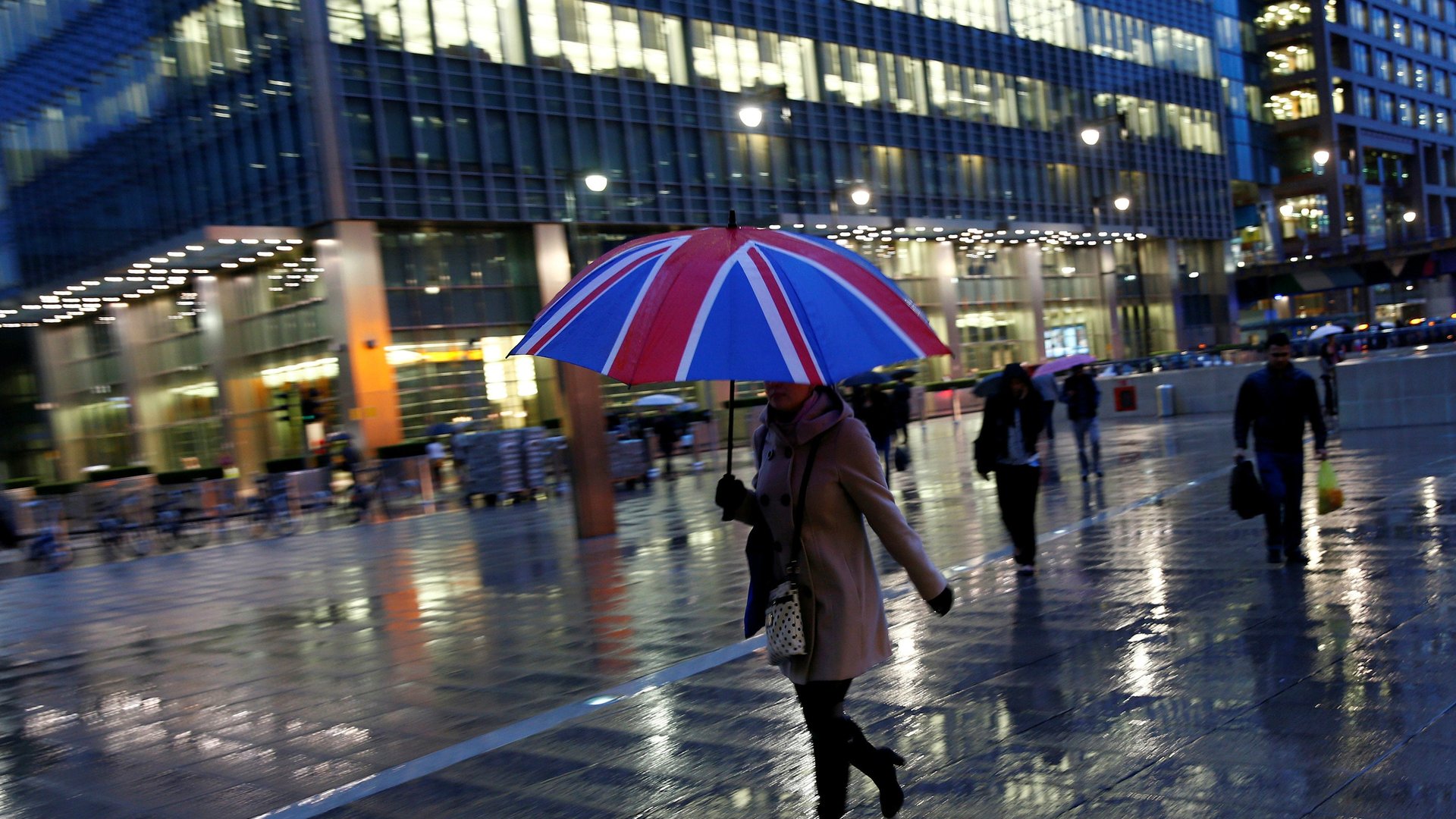From now on, British workers are all getting pay cuts
British workers’ wallets are getting lighter, thanks to inflation.


British workers’ wallets are getting lighter, thanks to inflation.
Two years of real wage growth, in which increases in average earnings outpaced inflation, are about to come to an end. Consumer prices are now rising roughly as fast as earnings, effectively resulting in a pay cut for the average worker. (Higher-than-expected inflation data for February was released today, but we only have wage numbers for last month, which is why the lines below don’t cross. Yet.)
The pound’s sharp depreciation since the Brexit vote has pushed up prices on everything from groceries to gadgets. Coupled with historically low wage growth, this bodes ill for consumer spending. This is troubling because the UK’s economy—which has held up relatively well since the Brexit vote (paywall)—is fueled by consumption, which accounts for more than 60% of GDP. A potential slowdown in consumer spending may be hastened if the Bank of England decides to raise interest rates to contain rising inflation (one official has already voted to hike rates).
That said, falling real wages aren’t so unusual—inflation outpaced earnings growth from 2008 to 2014. If anything, the past two years of real wage growth were the exception.